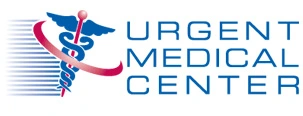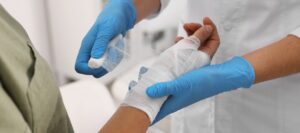
Norovirus can infect people of all ages. There is no antiviral medication for Norovirus so for the most part you just have to ride out the storm, which most of the time you’ll be riding out on the toilet.
In January of this year, a Norovirus outbreak caused a Royal Caribbean ship, Explorer of the Sea, to return to port early due to the fact 700 crew and passengers were sick with norovirus. This sort of outbreak must be prevented at all costs on US Navy Ships, otherwise the entire ship would be inoperative and useless. The Navy takes special precautions to prevent serious illness outbreaks, despite the close quarters that sailors and marines live in.
So how do they do it? For one, all passengers are screened for illnesses before they ever board the ship. If someone becomes ill at sea, they are isolated until they are no longer contagious. Otherwise, one sick person touches something and then 2 more people touch it and get sick, and then the next thing you know everyone is sick.
6 Things To Help Prevent Exposure To Norovirus
#1. Wash Your Hands
Doctors wash their hands all of the time, and that’s part of the reason they don’t get sick all of the time despite handling sick patients day after day. The number one way to prevent getting Norovirus, or any other illness, is to frequently wash your hands. Lather your hands up with soap and let them soak for at least 20 seconds in order to sufficiently remove all bacteria.
#2. Don’t Touch Your Face
Always wash your hands before touching your face or eating with your hands. In order to get Norovirus you literally have to ingest it, and so the virus must come in contact with your mouth, nose or eyes. You give Norovirus a free pass to infect you when you don’t wash your hands and then touch your face.
#3. Practice Safe Food Handling Practices At Home
The 2 most common ways norovirus spreads is through person-to-person contact and contaminated foods. Always wash your hands before you cook a meal. Continue washing your hands throughout the cooking process whenever your hands come into contact with something other than clean cutlery and fresh produce. Norovirus is highly resistant and can survive in temperatures up to 140 degrees F. Carefully wash all fruits and veggies and thoroughly cook seafood. Avoid eating at unsanitary establishments as this increases your risk for contacting Norovirus.
#4. When You’re Sick Do Not Care For Or Cook For Others
Isolate yourself from others whenever you are sick. It’s easier than you might think to spread norovirus from one person to another. You should not work with children until your symptoms have ceased for at least 2 days. The same 2-day post-symptoms rule applies to people that work in the food industry.
#5. Clean & Disinfect Contaminated Surfaces
If you or someone in your house has norovirus it’s so important that you keep any surfaces you/they come into contact with clean and sterilized. This is especially true after you throw up or have diarrhea. Sanitize surfaces using a substance approved by the Environmental Protection Agency (EPA) to kill norovirus.
See the substances approved to kill norovirus: EPA’s Registered Antimicrobial Products Effective Against Norovirus (Norwalk-like virus)[3 pages]
#6. Thoroughly Wash Laundry
Keep infected laundry separate and carefully handle any soiled items. Wear rubber gloves when removing soiled laundry, and wash your hands after taking off your gloves. Wash items at maximum capacity and machine dry.
Symptoms Of Norovirus & How Long It Lasts
The most common symptoms of norovirus include:
-Vomiting
-Diarrhea
-Nausea
-Stomach pain
-Fever
-Headache
-Body aches and chills
You generally develop symptoms 12 to 48 hours after you are exposed to the virus. The illness typically resolves itself within 1 to 3 days.
Norovirus can cause excessive diarrhea and/or throwing up, putting you at risk for dehydration. This is especially true concerning small children. Make sure to stay hydrated and if your symptoms are not clearing up, visit Urgent Medical Center as soon as possible.





